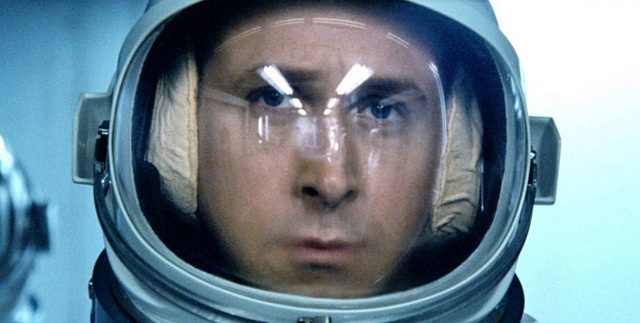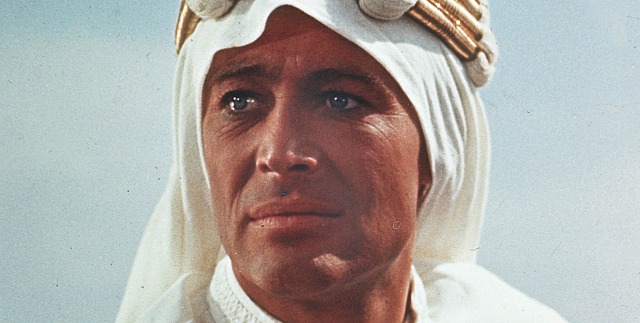I for one know for an absolute fact that Damien Chazelle‘s First Man is a major achievement in the realm of personal, epic-scaled cinema — a film about a huge, earth-shaking event that was nonetheless “seen” and painted with deft little psychological brushstrokes, which in a way makes it a kind of galactic companion piece to Lawrence of Arabia.
David Lean‘s 1962 Oscar-winner told us that T.E. Lawrence was a poet warrior-dreamer who accomplished great things militarily against the German-allied Turks during World War I, but who the hell was he? Why was he so not-of-this-earth? Why was he so clenched and blocked and deluded in certain ways?
Similarly, Chazelle and screenwriter Josh Singer are reminding us that Neil Armstrong, by any measure a repressed and inexpressive fellow, tapped into a certain greatness and fulfilled his fate in part by burying his emotions. And at the same time these filmmakers are asking “okay, but why couldn’t Neil be more like the rest of us? What was his problem?”
Or maybe, they’re also asking or saying, it wasn’t a problem. Maybe all great-destiny types have to be hardcore like Neil? Maybe they all have to embrace steel and severity? Maybe, as Robert De Niro’s Neil Macauley said to Al Pacino’s Vincent Hanna 23 years ago, ‘That’s the discipline’?”


Nonetheless, First Man fell short over the weekend, and Variety‘s Owen Gleiberman‘s analysis isn’t that Chazelle’s film was wounded by charges of being “too cold, too impersonal” or because of that idiotic flag-planting complaint, but that the last 40 years of George Lucas-inspired space fantasies have killed interest in actual, real-deal space travel.
Gleiberman: “I think the explanation for why First Man has met with a ho-hum response at the box office — and a ho-hum response in the culture — comes down to something basic. The film is about the moon landing, and frankly, in 2018, no one gives a damn. Not really. Because they’ve seen it before. And they’ve been seeing it for most of the last 50 years.
Gleiberman is basically saying that popular culture and reality started to merge — “fusing in our imaginations” — after the Star Wars explosion of 1977. “Part of what it did was to co-opt the imagery of space and elevate it into a video-game religion,” he notes. “That may have been one of the reasons the space program faded; it began to seem prosaic by comparison. Star Wars was colorful and energized, but the moon, after we’d conquered it, remained barren and gray. What were we going to do, grow vegetables there?
“Once we’d been to the moon a couple of times, and Star Wars had turned outer space into our new home away from home, who needed to go back? The moon had become a blank slate. It was Star Wars without the gizmos. And Star Wars was the space drama that a generation now lived inside.
“The ultimate effect of the Star Wars movies was to revolutionize American film culture by transforming it from something reality-based into something fantasy-based. Space, which had once been a real place, became the setting for our new fundamentalist pop mythology.”
Especially, I would add, after the 1980 release of The Empire Strikes Back. Suddenly (and all too briefly) Lucas’s Star Wars saga took on Arthurian proportions and echoes. And then Lucas promptly killed that whole current with the grotesque Return of the Jedi.
Gleiberman finale: “And one of the effects of that was to rob the moon landing of any quality of mystery — and, indeed, to displace it in our imaginations, not because it would ever be less than an extraordinary achievement, but because in 1969 it had a quality of awe, but now it had the aura of an ancient dusty prequel to the kinetic space opera we were all carrying around in our heads.”
